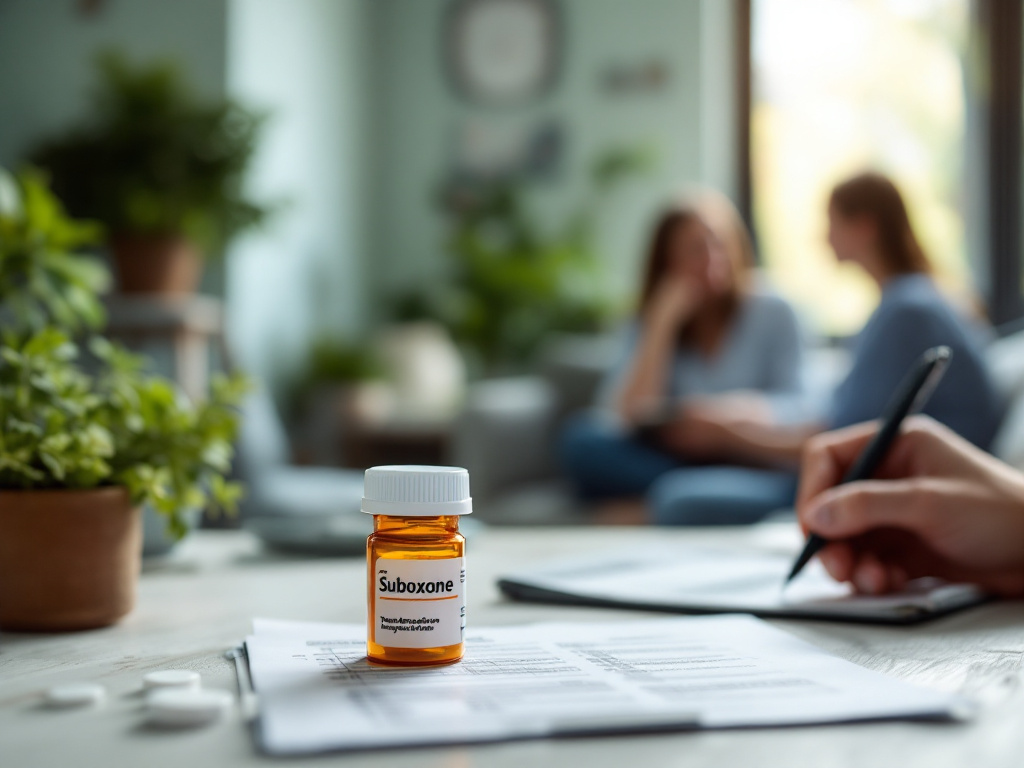Understand Suboxone treatment
When you’re ready to begin medication-assisted recovery, choosing a confidential outpatient Suboxone doctor is a crucial step toward long-term success. A provider who respects your privacy and offers evidence-based care can help you manage withdrawal, reduce cravings, and rebuild your life. In this guide, you’ll learn what to look for in an outpatient Suboxone specialist, from clinical credentials and treatment protocols to insurance coverage and privacy safeguards.
Additionally, you’ll discover how telehealth options and same-day scheduling can make it easier to start treatment quickly. By the end, you’ll have the tools to select a provider who aligns with your needs and goals, whether you prefer in-person appointments or a virtual suboxone medication clinic experience.
What is Suboxone and buprenorphine therapy
Suboxone combines buprenorphine and naloxone to ease opioid withdrawal and curb cravings, making it a cornerstone of outpatient addiction treatment. Buprenorphine and methadone are the gold standard for treating opioid use disorder, with decades of evidence proving their effectiveness in improving social wellbeing and reducing rates of drug use and death [1]. As a partial opioid agonist, buprenorphine binds to the same receptors as other opioids but with a ceiling effect that lowers overdose risk.
By working with an outpatient MAT provider, you can receive your Suboxone prescription without the need for hospitalization. Programs often include regular check-ins, medication monitoring, and coordination with behavioral health services. This model allows you to maintain daily responsibilities—work, school or family—while accessing the support you need. To find a local specialist, consider exploring an outpatient addiction medicine provider or an outpatient MAT clinic accepting insurance.
Benefits of outpatient MAT programs
Outpatient Suboxone programs offer flexibility, confidentiality and ongoing support. Key advantages include:
- Convenience: Attend appointments around your schedule, with options for evenings or weekends
- Privacy: Receive care in a discreet setting without inpatient stays
- Continuity: Maintain work or school commitments while in treatment
- Integrated care: Combine medication management with counseling or peer support
Many clinics now provide telehealth visits, enabling you to meet with your provider from home. If you need fast access, ask about a same day buprenorphine appointment. Whether you’re starting Suboxone or transitioning off opioids, outpatient MAT empowers you to take control of your recovery on your own terms.
Assess confidentiality standards
HIPAA and Part 2 protections
Your right to privacy is protected by federal regulations. Under HIPAA, all healthcare providers must safeguard your protected health information. For substance use treatment, 42 CFR Part 2 adds extra confidentiality rules to ensure records related to opioid use disorder remain secure. These regulations prevent unauthorized disclosures and require your explicit consent before information is shared [2].
When evaluating providers, confirm that they adhere to both HIPAA and Part 2 standards. A reputable clinic will explain how your data is used, stored and shared. Understanding these protections helps you feel confident that your treatment remains private.
Telehealth privacy considerations
Telemedicine has expanded access to Suboxone care, but you should still verify security measures. Look for encrypted video platforms and secure patient portals that prevent unauthorized access. Providers should outline their telehealth privacy policies, including how they handle electronic health records and session recordings. If discretion is a priority, ask whether you can use a private device or a secure location for your visits.
Evaluate clinical expertise
Credentials and licensure requirements
A qualified outpatient Suboxone doctor must hold a valid DEA registration and the state-required license to prescribe buprenorphine. Since the waiver requirement was eliminated by the Consolidated Appropriations Act of 2023, any licensed practitioner with a DEA number can prescribe buprenorphine in office-based settings where state law permits [3]. However, disciplines such as physician assistants and nurse practitioners may also hold prescribing authority if they meet state-specific criteria.
When researching providers, verify:
- Medical degree and board certification
- DEA number status
- State licensure and any specialized addiction medicine credentials
Specialized training and experience
Beyond basic licensure, look for clinicians who have completed training in addiction medicine or medication-assisted treatment. Ask about their experience managing Suboxone induction, stabilization and maintenance. Providers affiliated with reputable organizations often participate in ongoing education and peer-review activities, ensuring they stay current with best practices.
Check program accessibility
Appointment scheduling and telehealth options
Your recovery can begin quickly when clinics offer same-day telehealth scheduling. Confirm whether the clinic provides a streamlined process—such as an online form or phone triage—to book your first visit. Immediate access helps prevent gaps in care and reduces the risk of relapse. Freedom Healthcare, for example, offers same-day telehealth appointments for Suboxone initiation through a simple enrollment process.
Insurance coverage and cost transparency
Most outpatient Suboxone programs accept private insurance, Medicaid and Medicare. Confirm that your provider is in-network to minimize out-of-pocket expenses. You can also ask about sliding-scale fees or payment plans if you’re uninsured. Look for clinics that offer insurance verified Suboxone treatment to simplify billing and ensure you understand your financial commitment before beginning therapy.
Compare treatment plans
Induction, stabilization and tapering approaches
Not all providers follow the same protocol. Some clinics focus on rapid induction, bringing you to a comfortable maintenance dose within a day or two. Others use a slower approach to minimize withdrawal symptoms. If your goal is to eventually taper off Suboxone, look for a program that offers a structured suboxone taper and maintenance plan. A well-defined strategy will outline target doses, expected timelines and criteria for dose adjustments.
Behavioral therapy integration
Medication alone is often insufficient for lasting recovery. Effective outpatient programs combine Suboxone with counseling, cognitive behavioral therapy or peer support. Ask whether your provider collaborates with therapists or offers an in-house suboxone and behavioral therapy program. Integrated care addresses the psychological and social factors that contribute to opioid use disorder, increasing your chances of success.
Explore support services
Ongoing monitoring and follow-up
Regular check-ins are essential for monitoring progress and adjusting your treatment. Clinics should provide routine urine drug screens, prescription monitoring and dose reviews. Discuss how often you’ll meet with your doctor and whether you can access an online portal for symptom tracking. A clear suboxone recovery management plan ensures you stay on course and receive timely support when challenges arise.
Peer support and counseling
Connecting with others who share your journey can be a powerful motivator. Some outpatient clinics facilitate peer groups or mentorship programs. If you prefer a private setting, ask about private suboxone recovery care options that still incorporate one-on-one counseling. Peer support fosters accountability, reduces isolation and helps you build a network of resources.
Make informed decision
Preparing for your first visit
Before your initial appointment:
- Gather medical records, including your opioid use history and any recent laboratory results
- Check your insurance card and verify coverage with the clinic’s billing team
- List all current medications and supplements
- Identify privacy preferences, such as preferred contact methods and data sharing consents
Being organized ensures your provider has the information needed to create a personalized buprenorphine treatment plan setup that aligns with your health profile and recovery goals.
Questions to ask your provider
To feel confident in your choice, consider asking:
- How many patients do you currently manage on Suboxone?
- What is your success rate for maintenance and tapering?
- Do you offer telehealth follow-ups or only in-person visits?
- How do you coordinate counseling or peer support?
- What happens if I miss a dose or appointment?
These questions help you evaluate the provider’s approach and ensure they can meet your needs for buprenorphine therapy for opioid recovery.
Conclusion
Choosing the right confidential outpatient Suboxone doctor empowers you to take control of your recovery with confidence. By assessing clinical expertise, privacy safeguards and program features—such as immediate telehealth scheduling and integrated behavioral support—you’ll find a provider who aligns with your needs. Freedom Healthcare stands ready to support your journey with same-day Suboxone telehealth appointments, insurance-verified treatment and comprehensive outpatient MAT programs. Reach out today to schedule your first consultation and begin a path toward lasting recovery.











